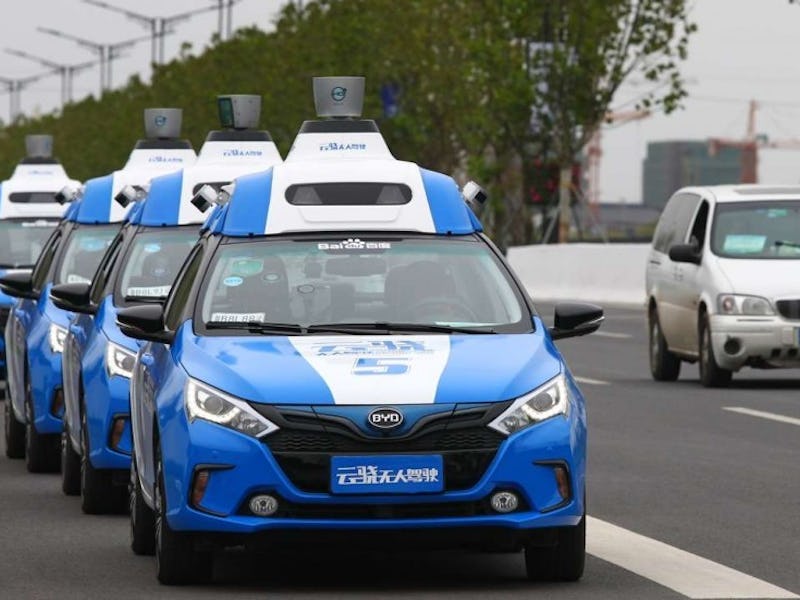Soon, Google will no longer be the only internet giant with driverless cars roaming the roads of California. Baidu, the Chinese search engine, recently received a permit to begin tests in California and, as of Tuesday, the company started public testing at China’s government-run World Internet Conference in Wuzhen. Baidu debuted its self-driving BMW3 on the roads of Beijing in December, but this is the first time the car has been tested with actual passengers.
While the tests were limited to a 2-mile stretch of road, over 200 visitors got to experience the new vehicle on Tuesday. The blue car, which can achieve up to the 37 mph (the local speed limit), might not seem like the most sophisticated driverless car on the market, but given the company first announced the project in 2015, it’s pretty quick progress. Most impressively, Baidu created all its technology, from the artificial intelligence system in the trunk to the Velodyne Light Detection and Ranging equipment, in-house. Light and road sensors allow the car to do things like switch lanes, make U-turns,and pass other cars safely.
The car uses light and road sensors to detect nearby obstacles and traffic.
Much like Uber, which began testing its driverless cars in Pittsburgh in September, Baidu’s driverless cars still technically come with a driver. Eventually, the company hopes to pair the technology up with a third-party ride-sharing service.
“We’re hoping that we can work with taxi-car companies or rental-car companies to provide this service,” Baidu Inc. Vice President Wang Jing told the Wall Street Journal. “In fact, there are some companies that already expressed interest.”
While Baidu has not announced how many cars are in the fleet or how many road miles the company has logged, it has set 2018 as the target deadline for getting commercial vehicles on the road, with mass production set to kick in for 2021. At that rate, the company will still have to play catch up with Uber and Google, and Tesla’s future rideshare service. But it’s a start.
